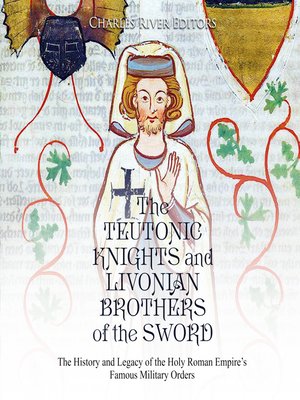The Teutonic Knights and Livonian Brothers of the Sword
audiobook (Unabridged) ∣ The History and Legacy of the Holy Roman Empire's Famous Military Orders
By Charles River Editors

Sign up to save your library
With an OverDrive account, you can save your favorite libraries for at-a-glance information about availability. Find out more about OverDrive accounts.
Find this title in Libby, the library reading app by OverDrive.



Search for a digital library with this title
Title found at these libraries:
| Library Name | Distance |
|---|---|
| Loading... |
Like other secretive groups, the mystery surrounding the Teutonic Knights has helped their legacy endure. While some conspiracy theorists attempt to tie the group to other alleged secret societies like the Illuminati, other groups have tried to assert connections with the Teutonic Knights to bolster their own credentials. Who they were and what they had in their possession continue to be a source of great intrigue even among non-historical circles.
Although many have heard of the Crusades and some of the more famous orders like the Templars, few know about the Livonian Crusade or the Livonian Brothers of the Sword. This organization was one of many Catholic military orders that sprung up during the Middle Ages in response to the papacy's call for holy war, and the Livonian Crusade is the term used to group together dozens of military actions undertaken by German knights in Eastern Europe.
In essence, the Holy Roman Empire sought to control influential trade routes throughout the region by subjugating the native peoples and forcefully converting them to Christianity, and in this regard, the differences between the Livonian Crusade and those taking place further east, where crusaders attempted to retake the Christian Holy Land of Jerusalem, are readily apparent. In particular, there was no actual religious justification for the Livonian Crusade, and many of the knights deciding to join were often more interested in the political and economic benefits gained from the war. When it comes to understanding the history of the Livonian Brothers of the Sword, scholars have their work cut out for them, as few primary sources survived the conflict, and the order has had many different names over the years, including the Swordbrothers, the Livonian Order, and the Swordbrothers.







